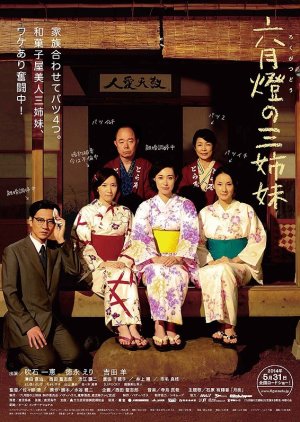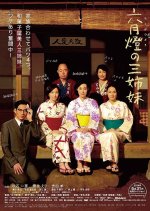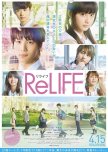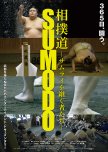Set at a family run confectionary type shop named "Tora Ya". Because of a large shopping center, the family run shop "Tora Ya" suffers financial losses. The family that runs "Tora Ya" is a bit unusual as well. The parents are divorced. The oldest daughter divorced and returned home. The middle daughter is in the process of filing for divorce. The youngest daughter has just broken off her engagement. The three daughters and the husband of the middle daughter decide to join forces to revive "Tora Ya". (Source: kisskh) Edit Translation
- English
- magyar / magyar nyelv
- dansk
- Norsk
- Native Title: 六月燈の三姉妹
- Also Known As: June Light's 3 Sisters , Rokugatsudou no Sanshimai
- Director: Sasabe Kiyoshi
- Genres: Life, Drama, Family
Where to Watch Three Sisters
Subscription
Cast & Credits
- Fukiishi Kazue Main Role
- Inoue JunAkune NorioSupport Role
- Tsuda KanjiHirakawa ToruSupport Role
- Ichige YoshieNakazono KeikoSupport Role
- Tokunaga EriNakazono SakaeSupport Role
- Yoshida YohNakazono ShizueSupport Role
Reviews

Three Sisters' Relationships with Men
For a film that is supposed to be about three sisters, it was more about their relationships with the men in their life than about them.This is a slice-of-life story that unfolds in Kagoshima where people prepare for their Summer Festival, a week-long festival where shrines and streets are decorated by beautifully hand-painted lanterns. And, as expected by a film chosen for the JFF Theater, it's very well done in these two regards. The ordinary interactions between the cast, the awkwardness and the unintentionally funny things that happen, as well as the background characters and their slightly sexist remarks -- they all feel very realistic. The cityscape with its old-fashioned trams and little shops, and with the lit lanterns during the festival makes for a vibrant background.
If only it wasn't for the story.
A better title would have been "The hetero relationships of three women" -- because the film does not explore the sisterly relationships very well -- and if it does, it's always in the context of the relationships to men. Even when the two older sisters talk about being sepearated during childhood, it wasn't about their own experiences, or how it shaped their relationships as sisters, no, it was about how it was living with (or without) a father. Even when the two older sisters try to lift their youngest sister's spirits, it's with the thought in mind that she is good enough to deserve a good man.
The shop and its problems stay part of the colourful background, the familial bonds are solely defined by their talks about the men in their life. The eldest sister has no character at all (except that she is divorced and a nice person), the middle sister does have an interest outside of family, but it's mainly mentioned in the context of her meeting another man, and only in the last minutes does the youngest sister show that she has an aspiration that is solely her own (and which needs her father's approval, although the shop belongs to the mother).
I *think* this was not the writer's goal. I *think* what he or she *wanted* was to tell a tale about three sisters and her mother, their familial bond and how they decide to live independently or with a man by themselves and solely because of their own feelings, and not because they feel pressured (by outside expectations) to do it. And, yes, that might be a story that is worthy of telling -- but maybe not to the detriment of the women's own characterization.
Was it good? -- The film probably passes the Bechdel test. Barely. The lanterns were pretty though, and the slice-of-life aspect was well done.
Did I like it? -- It think the story the writer wanted to tell is not the story we got to see. I found it incredibly frustrating to watch a film about three women that was not about them.
Who would I recommend it to? -- Maybe to people who like to see women's relationships with men?
Was this review helpful to you?

Pleasant slice of life
It's a pleasant wee movie where no one thing was explored in depth but a range of things around a theme were touched on.I think its intent is to make statements about women living by their own terms, but it's still immersed in a very patriarchal and male-centered society. As an outsider peeking in through their cinema, I don't know enough about feminism and sexism in Japan a decade ago to know if they were saying anything significant for the time and place. That divorce factors in so prominently probably is. I do think a theme is women defining themselves. It's just that their options are framed in terms of men.
The three sisters and their mother all embody different aspects of that. The relationships between the women are largely supportive, they're the glue connecting them rather than the focus of drama or narrative events.
The slice of life nature makes this work. It's a couple of weeks in the lives of an unconventional family. With a lovely Kagoshima lantern festival for more texture and beauty.
Was this review helpful to you?
Recommendations
There have been no recommendations submitted. Be the first and add one.
































